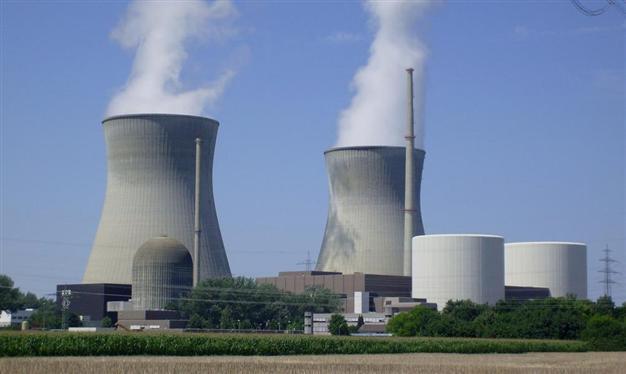China, Japan in short list for Turkey's second nuclear plant
ISTANBUL - Hürriyet Daily News

Japan, South Korea, China and Canada were the short-listed contenders for the 5,000-megawatt nuclear power plant. Hürriyet photo
China and a Japanese-French joint venture are still competing to build Turkey’s second nuclear plant, while South Korea is out of the competition due to its problems with a treasury guarantee, Turkish Energy Minister Taner Yıldız said in an interview with NTV news channel.“Recently, South Korea mentioned some of its problems regarding a treasury guarantee and capital structure, and we said, ‘These are our red lines.’ Since South Korea failed to pass five criteria we can’t compromise on, it left the competition,” the minister said, without specifying the five essential points for Turkey.
The minister, who denied Japanese reports’ claims that Japanese venture have won the order, said talks were
continuing with Japan and China intensely, and the process was about to end.
Japan, South Korea, China and Canada were the short-listed contenders for the 5,000-megawatt nuclear power plant, which is slated to be built in the Black Sea province of Sinop. France also emerged as another bidder, with French company GDF Suez officially placing a joint bid with Japanese companies.
Last month the minister announced that Canada was dropping out of the competition. Now South Korea has left the race as well. The second nuclear power plant is expected to require an investment worth between $22 billion and $25 billion.
Russia’s Rosatom will build Turkey’s first nuclear power station, starting construction in mid-2015. The company that wins the contest for second nuclear plant will also conduct a study on the location of a third one that Turkey plans to build.
Tighter ties with Iraq
During a separate interview with Reuters yesterday, Yıldız voiced Turkey’s vow for an active role in any arrangement in Iraq under which crude oil export revenues are shared between the central government and the northern Iraqi Kurdistan Regional Government (KRG) region.Turkey stood ready to support an arrangement under which 83 percent of oil export revenue went to Baghdad and the remaining 17 percent went to the KRG, he said.
“There is nothing on this issue that would unsettle the Iraqi central government,” Yıldız said.
The KRG started on the path toward economic independence early this year by exporting small volumes of crude oil by truck to Turkey, angering Baghdad, which threatened action against the region and foreign oil companies working there to stop the exports, which it says are illegal.
Yıldız told Reuters he saw no obstacles to public or private firms striking oil exploration deals with the KRG, but also said Turkey would take part in oil exploration tenders if invited to do so by the central government in Baghdad. He said Turkey also stood ready to build a natural gas pipeline in Iraq if requested by either Baghdad or the KRG.
Yıldız said Turkey’s imports from northern Iraq changed on a daily basis but reached a maximum of around 200-250 road tankers a day. He said Turkey might increase annual oil imports from Iraq as a whole to 4 million tons from a current 3.5 million.
















